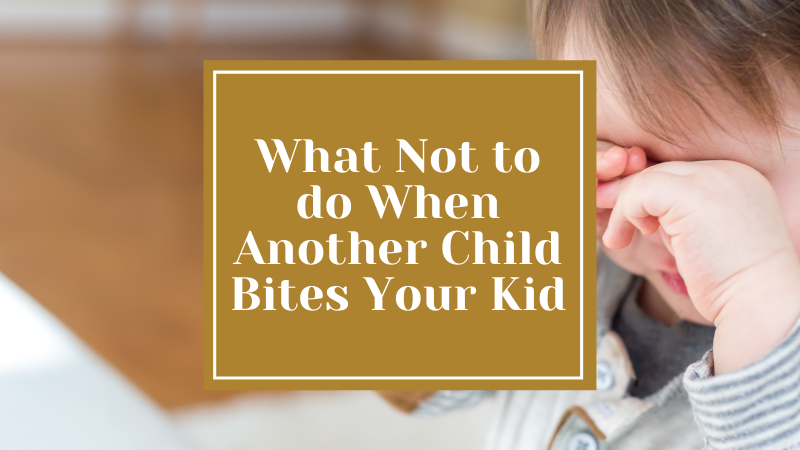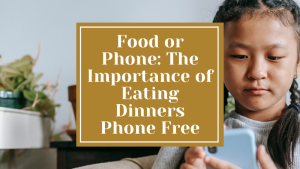As hard as we try, we can’t always stop bad things from happening to our children. We can’t watch over them at school and we don’t want to be that mom running after them at the playground.
Bubble wrapping them isn’t an option either. Sometimes, they will get hurt, and that’s fine. But what happens when it is another child that hurts them?
At school, daycare, or even at the playground, your child may get bitten by another little kid.
While we might be popping off with anger inside at this other 3-year-old, socially and morally we can’t actually start a fight with a toddler. That motherly-instinct kicks in and we look for someone to be angry at or to blame, but it really isn’t that simple.
As hard as it might be, you need to try and control your emotions, keep your cool, and calm your now screaming child.
There are many different options for dealing with the aftermath of a bite. Many of each can be equally good depending on the children involved, the severity of the bite, and other factors. So, instead of a list of things to do when your child gets bitten, here is a list of what not to do when another child bites your child—you might need it more in the moment!
1. Don’t Yell at the Other Child
Sure you are angry —someone else has caused harm and pain to your little one.
Our first reaction is usually anger. However, taking our anger out on the other child isn’t the right option.
You don’t want to be that crazy scary parent that screams at other kids, and you also don’t want to escalate the situation with the other parents. Not only does it paint you in a bad light, but it can also get you into quite a bit of trouble. Some parents will not take kindly to you yelling at their kids, even if their kid did do something wrong.
Rather assess the situation before making any bold moves, take a deep breath, then firmly tell the other child “no” or to “go away” without screaming.
2. Don’t Attack the Other Parent
Because we can’t attack the 3 year old for biting our child, it would then in the moment seem logical to attack the parent. Yet again, not a good idea.
You never know what that parent is dealing with. Some children just go through biting stages; it is not like the parent has sat at home night after night teaching their kid to chomp on unsuspecting victims. They are probably really embarrassed, sorry, and more than likely also at a loss on how to deal with the situation.
Rather approach them in a calm, understanding manner. Let them know what has happened and talk it out like adults.
If the parent isn’t willing to communicate with you, it’s probably best to leave the situation all together. Nothing good comes from escalating an already upsetting situation.
Take a deep breath, take your child home, and make sure they’re okay.
3. Don’t Teach Your Child that Anger is How to Solve Problems
The worst thing you could do is teach your child that anger is an acceptable coping mechanism. If you bust out the boxing gloves after something like this happens, you are showing them that it is okay to resort to violence or aggression to deal with a situation.
Anger and aggression never successfully solve problems. Rather show them that in order to approach and deal with a situation, you need to remain level headed and fair.
Your children are sponges at this age. They are watching every single thing you do. Make sure you’re teaching them to be an even better person than you are.
4. Don’t Molly-Coddle your Child
Biting can hurt. It extreme cases bites can bruise, be sore, and even bleed. Although, most of the time they are not this severe.
However, they still don’t usually require calls to the ambulance or for you to run around screaming like your child is dying. Yes, if the bit has broken skin a doctor’s visit is probably in order because there are germs and diseases that can be transmitted this way, but don’t overreact. You have plenty of time to get there.
You still want to teach your child that being calm and level headed is the best approach to situations that don’t go according to plan.
If the bite isn’t very severe, try to redirect your child’s attention to another activity to take their mind off of it. You may be surprised to see how quickly your child is able to recover from the bite.
5. Don’t Downplay the Bite Either
While you shouldn’t overreact, your child still needs some sort of reaction from you. They will come running to you in tears and will need your comfort and love. You need to soothe them and help calm them down. Once you have calmed them down to a manageable state, you can assess the situation and see if the wound needs attending to.
Brushing off your child and telling them to rub some dirt in it don’t validate your child’s pain and feelings. You are their safe space and they should be able to express what they’re feeling with you before they continue to play.
You will come across many situations in parenthood where someone has done something or said something to your child that gets your blood boiling. As easy as it is, and as much as we want to lose our cool, we have to remember that there are little eyes watching our every move. Every reaction we have and every situation we deal with will leave an imprint on our kids and how they deal with their own situations later on in life.




